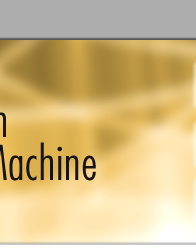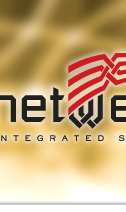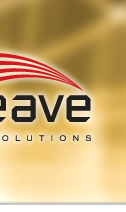| |
Other NetWeave Solutions
Secure, Reliable File Transfer
NetWeave for the Web
Secure Communications
Queued Messaging (Workflow)
Interactive (Transactional) Messaging
|
|
NetWeave Services
NetWeave provides messaging services with components that are available as dynamic and/or static libraries and also as independent agent processes (i.e., daemons), where appropriate. These components are tightly integrated with supported operating systems, including Linux, MS/Windows, HP NonStop, HP OpenVMS, IBM z/OS CICS, IBM iSeries, HP-UX, IBM/AIX, and Oracle Solaris.
The NetWeave API
The function calls that comprise the NetWeave Application Programming Interface (API) are simple to understand and to use in their basic forms. The calls allow enough power and flexibility for production-strength conditions as well as the ability to use the NetWeave services either synchronously or asynchronously.
Supported Interfaces
NetWeave supports a variety of programming interfaces suitable for integration into the legacy environments of many corporate host systems as well as into web-oriented applications for new IT initiatives.
- C Language Interface: NetWeave is written in C/C++, so C on any platform can readily integrate with the NetWeave library.
- COBOL Language Interface: NetWeave provides a COBOL language interface for most supported platforms.
- Platform-Specific Languages: Many single-platform languages are supported, including Visual Basic on Windows and TAL on HP NonStop platforms.
- Java Interface: NetWeave supports a Java interface for a Java class library (Jar), Servlet, and Enterprise Java Beans environments. Find more information on our Java interfaces at NetWeave for the Web.
- .NET: NetWeave provides a flexible, high-performance interface to applications and services in the Windows .NET setting. See NetWeave for the Web.
NetWeave Ancillary Services
Several important sets of ancillary services are provided by NetWeave to support messaging middleware.
- Transaction Services are used by a client application to bound a series of updates to a remote data base. By starting a transaction and subsequently committing it, all intervening updates are guaranteed to be made to the data base; or else none are made. Thus, the data base will always be left in a consistent state. Transaction protection integrates with the transaction services provided by the target platform.
- Dual Channel Services allow two systems to be connected by independent communication channels. Should one fail, communication continues uninterrupted over the surviving channel. Upon restoration, the failed channel is automatically returned to service.
- Security Services offer controlled access to a server platform by using a challenge/response protocol. Our services include authentication, access control, and encryption.
Authentication – NetWeave supports two distinct authentication mechanisms.
- Authentication by name and password attempts to validate the client using host operating
system calls to the host’s security tables. This form of authentication requires the services of a
NetWeave Agent on the host.
- Challenge-response authentication is more secure than authentication by name and password and does not require the presence of an Agent to mediate the authentication process. For challenge-response, the NetWeave libraries in the server and client conduct a secret negotiation (transparent to the client and server applications) to prove the client’s identity.
Access Control – The NetWeave access control procedure determines whether a remote client has
access rights to open a host file. This procedure uses the host’s operating system calls to check the
client’s access rights. A NetWeave Agent on the host mediates these rights.
Encryption – NetWeave encryption services include DES, 3DES, and an SSL/TLS 1.2 encryption
suite. The XYGATE®/ESDK encryption library from XYPRO Technology Corporation
(www.xypro.com) is embedded within the NetWeave product in order to provide these services.
|







